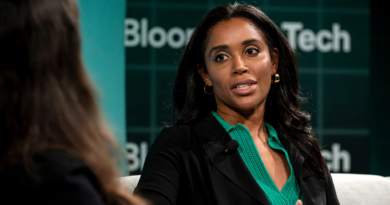From rags to riches, Rent the Runway goes from penny stock to quadrupling share prices in days after doubling down on AI
After several rocky quarters of navigating pandemic-era fallout, fashion e-commerce platform Rent the Runway is flying high, thanks to its restructuring efforts—and its decision to lean into AI.
The company’s stock quadrupled this week after it reported optimistic earnings on Wednesday, hovering at around $5 per share before leaping over $20. Rent the Runway posted revenue of $298.2 million for 2023 on Wednesday, a modest year-over-year increase from $296.4 million in 2022.
Compared to the 2023 fiscal year, Rent the Runway predicts revenue growth from 1% to 6%. The company has yet to turn a profit, but it hopes 2024 will be its break-even year. To make it happen, it’s putting a greater focus on leveraging technology to improve marketing.
“In 2023, we made major strides on site performance and speed across all of our surfaces, and we made it easier for users to find inventory they love via enhanced discovery features like Rent the Look, AI search, new filtering, and upgraded photography and styling,” CEO Jennifer Hyman said in a Thursday investors call.
Founded in 2009, Rent the Runway went public in 2021. But despite a great first impression on the stock market, the clothing e-commerce brand was hit hard by the pandemic, which halted all occasions where luxury clothing was necessary. Rent the Runway also had a history of poor customer service and delayed orders, along with a lackluster clothing selection of casualwear that failed to interest customers, and its reputation soured. Rent the Runway stalled at about 130,000 subscribers, while competitors like Urban Outfitters have continued to grow. During the pandemic, 60% of its audience paused or canceled subscriptions.
But Rent the Runway refocused over the past year: It hired Natalie McGrath as CMO in February, a month after cutting 10% of its corporate workforce. Skating by as a penny stock, the company last week implemented a one-for-20 reverse stock split, freeing up 2.6 million shares in order to regain Nasdaq compliance for its minimum listing price.
But one of its most exciting prospects is its leap into AI. In June, the company began testing an AI search feature that generated product listings based on search terms like “Miami vibes.”
“It is the biggest thing to happen to consumer-facing businesses since the launch of the iPhone,” Hyman said. “You’re either going to be a beneficiary of AI as a consumer-facing company or you’re going to die because of AI. Fashion overall is going to benefit.”
Rent the Runway did not respond to Fortune’s request for comment.
E-commerce is leaning on AI
Leveraging AI technology has the potential to ease the cognitive load of consumers, retail experts said, reducing the energy they put into looking for a specific item on the site.
“Rent the Runway has just become the poster girl for investors that believe AI can help small businesses and not just large behemoths,” Michael Ashley Schulman, chief investment officer at Running Point Capital Advisors, told Reuters.
And more retailers are willing to take the risk with AI. Twilio’s 2024 State of Customer Engagement Report released on Wednesday identified AI as a tool to “greatly improve customer engagement,” with 70% of the 4,750 companies surveyed reporting that they have already used AI to personalize marketing. Increased personalization has struck a chord with consumers: More than half of respondents in Twilio’s survey said they would spend more money on a personalized shopping experience, and almost half of the 6,300 consumers surveyed said they’d return to a business based on the level of personalized marketing they received.
E-commerce juggernauts like Alibaba have demonstrated that AI has a place in the sector beyond marketing and consumer engagement. In March, the company announced a campaign to expand cross-border e-commerce with AI tools, including a smart assistance chatbot and AI software to automate sales processes. According to Alibaba, AI-optimized products on the site have increased by 37%.
Though Alibaba’s interest in AI expands far beyond its retail arm to large language models that could compete with the likes of Amazon and Microsoft, cofounder Jack Ma extolled the virtues of the technology, urging the company to continue to lean into AI hype.
“The AI era has just arrived,” Ma wrote in a Wednesday memo. “Everything has just begun, and we are in the moment!”




